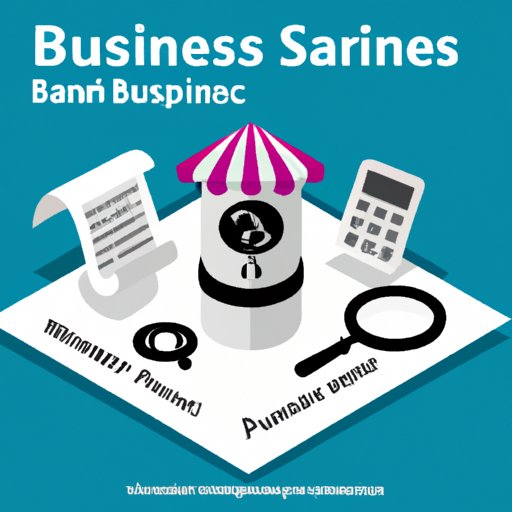Introduction
Starting a small business can be a daunting task, but with the right preparation and knowledge, it can also be an incredibly rewarding experience. Whether you’re looking to open a retail store, freelance consulting firm, or other type of small business, there are certain steps you should take to ensure your venture is successful. This article will guide you through the process of starting a small business so that you can feel confident in your decision-making and prepared for whatever comes your way.
Overview of Starting a Small Business
The first step in starting a small business is to determine what kind of business you want to create. Do you want to open a brick-and-mortar store? Provide services as a freelancer? Sell products online? Once you have an idea of the type of business you want to start, you can begin researching the market and competition, creating a business plan, securing financing, choosing a business location, understanding legal requirements, and developing a brand identity. All of these steps are necessary for setting up a successful business.

Benefits of Starting a Small Business
Starting a small business has many benefits, both financial and personal. Entrepreneurship allows you to be your own boss and have control over the direction of your business. As a small business owner, you also have the potential to make more money than if you were working as an employee. Additionally, owning a business can give you a sense of pride and satisfaction in knowing that you’ve created something from nothing.

Research the Market and Competition
Before starting a small business, it’s important to research the market and understand who your target customers are. Consider factors such as demographics, lifestyle, and buying habits when determining who your ideal customer is. You should also analyze your competition to see how they’re positioning themselves in the marketplace. Knowing your target market and analyzing your competition will help inform your business decisions and give you an advantage over your competitors.
Create a Business Plan
Once you’ve done your market research, it’s time to create a business plan. A business plan outlines your goals, identifies the resources you need to achieve those goals, and outlines the strategies you’ll use to reach them. It’s an essential document for any small business, as it helps you stay focused and organized throughout the process of starting a business.
Secure Financing
Securing financing is an important step in starting a small business. You’ll need to explore different funding options, such as loans, grants, and investors, and develop financial projections to show potential lenders or investors how you plan to make money. It’s also important to understand the tax implications of starting a business and how to manage your finances responsibly.
Choose a Business Location
Choosing the right business location is key to success. When selecting a space, consider factors such as proximity to customers, access to transportation, and cost of rent. You should also research local zoning regulations to make sure your business is compliant with city ordinances. Finding the right location is an important part of the process of starting a small business.
Understand Legal Requirements
It’s important to understand the legal requirements of starting a business. This includes obtaining licenses and permits, as well as researching the laws and regulations that apply to your industry. You should also obtain insurance to protect yourself and your business in case of any unforeseen circumstances. Finally, you should familiarize yourself with your tax obligations as a business owner.
Develop a Brand Identity
Creating a strong brand identity is essential for any small business. Your brand identity should reflect your values and mission and communicate the unique value you offer to customers. Developing a message and visual identity that resonates with your target audience will help you stand out from the crowd and build loyalty among your customers.
Conclusion
Starting a small business can be a challenging but rewarding experience. To ensure your venture is successful, it’s important to do your research, create a business plan, secure financing, choose a business location, understand legal requirements, and develop a brand identity. With the right preparation and knowledge, you can set yourself up for success and enjoy the rewards of entrepreneurship.
(Note: Is this article not meeting your expectations? Do you have knowledge or insights to share? Unlock new opportunities and expand your reach by joining our authors team. Click Registration to join us and share your expertise with our readers.)
